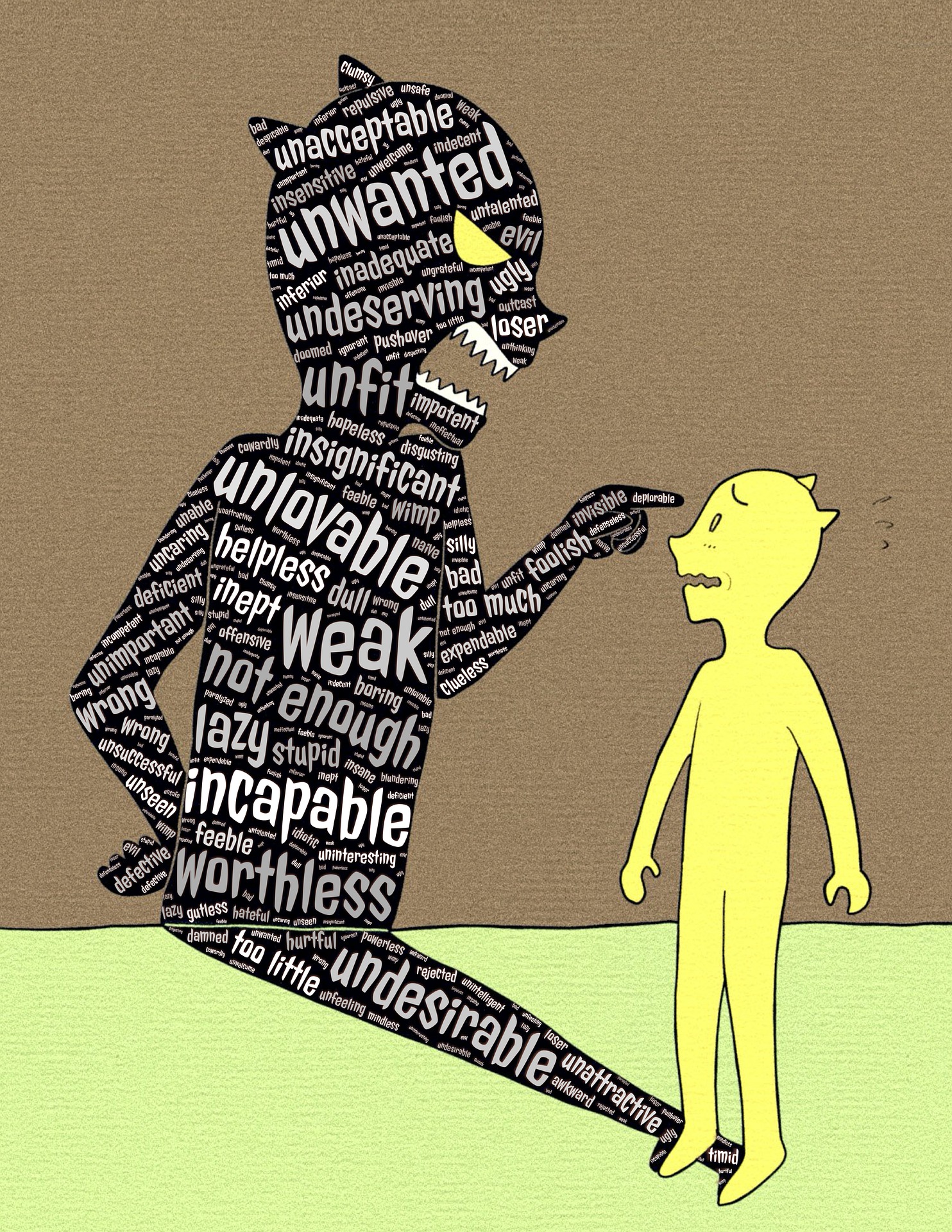
If you’re working on your personal development and trying to change your life in any way, shape or form, you’ll encounter a number of challenges. And a lot of problems to solve along the way.
But while you’re trying to solve each and every problem you encounter, there is no change or development happening. Only stagnancy in what I call “problem solving paralysis.”
You’re so focused on all of your so-called problems, you don’t see the bigger picture.
Trying to fix what are typically minor individual issues without ever addressing the underlying root of the actual problem. This is more often than not, an issue of low self-esteem.
And the reason why you’re stuck solving all those problems is very much the same. If your self esteem is low, your pathological inner critic easily dominates your thoughts and encourages you to push harder, work harder and put yourself under massive pressure. And if you’re not able to rise to its expectations, it tears you down even harder. This keeps you in a state of stress, constantly trying to catch up without ever getting one step closer to where you actually want to be.
Inner mechanisms like your negativity bias, which is our natural tendency to focus on the negative and all our problems, play into this pattern as well. And as long as you are unable to recognize these parts of yourself and see them for what they really are, your self esteem will continue to suffer.
In order to overcome and start making real life changes, it requires you to identify your patterns and inner habits, and replace them with conscious, healthy habits.
This will allow you to deprogram the inner negative and rewire yourself from the inside out – with intention.
As Robert Fritz said, “you can get rid of all your problems and still not have what you want.”
The question is, how do you know you’re in “problem solving paralysis”?
Here are some questions:
- Do you often find yourself in the “if-then” trap? Meaning, do you often tell yourself: If I only had X, then I could do Y. For example, “if I was more confident, it would be so much easier for me to find a new job.” Or, “if I get a raise next month, then I can ask her out on a date.”
- Do you catch yourself constantly focusing on just the problems in your life?
- Are you frequently dissatisfied with yourself? Your work? Your life?
- Do you often beat yourself up for mistakes you’ve made?
- Do you feel like you’re always trying to catch up?
- Are you lacking clarity in your life? Feel like your mind and thoughts are often foggy? Easily distracted?
If you answered “yes” to one or more of these questions, you’re likely stuck in “problem solving paralysis.” This prevents you from making any headway in your life. Especially if you’re trying to elevate and evolve onto a deeper life experience. A life with purpose, fulfillment, and meaningful relationships.
You can’t evolve your life if you’re always stuck in your mind trying to solve what you perceive as problems.
It’s exhausting and will only rob you of your energy and motivation. More times than not, it breeds deep frustration to the point of giving up. What’s the point after all? You’re buried in all of these problems with no way out. Right?
No. Giving up is not an option.
The key to escaping this problem solving paralysis is to resolve the issues at their root. This means going inward to your core and building healthy self esteem.
This is your foundation and the root of clearing out a lot of the inner fog that perceives situations as “problems.” Once grounded in a solid, healthy self esteem, these issues tend to become much more in your grasp and controllable. No longer seen as problems, but life circumstances that you can progress through as needed. No stress, no panic. Just parts of life that you can control.
Trying to achieve this on your own can take years, if not decades.
But with the proper guidance of someone who could show you exactly where to “dig” and what to do, you can start seeing improvements in a matter of weeks and/or months.
This is what we do at Feel Different.
We offer you a comprehensive and effective system to build healthy self esteem. We’ve tried and tested every single method we teach, with thousands of successful participants who have transformed their lives in ways unimaginable prior to our programs.
Start making a difference today. Escape your problem solving paralysis and explore our program “Self Esteem for the Rest of Us” today.


